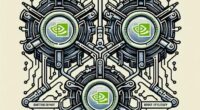EC’s Vote Transfer Directive Deemed Unlawful by NDC’s Omane Boamah
The National Democratic Congress (NDC) has voiced strong objection against the Electoral Commission’s (EC) recent directive. This directive, which excluded political party agents from the vote transfer process, has been labeled by the NDC as unlawful and without any basis in the legal framework governing electoral processes in Ghana.
During an interview on the Citi Breakfast Show hosted by Citi FM, Dr. Edward Omane Boamah, the NDC’s Director of Elections and IT, expressed serious concerns over the EC’s approach. Dr. Boamah criticized the Commission for not collaborating with representatives of political parties before making such a pivotal decision.
“The essence of convening IPAC meetings is to ensure a collaborative electoral process. Yet, the EC opted to issue this directive independently, without seeking consensus or at least discussing the potential ramifications with political parties,” Dr. Omane Boamah stated. He further challenged the EC to cite the specific legal provision that empowers it to exclude party agents from overseeing the vote transfer exercise.
The NDC’s discontent stems not only from the exclusion of party agents but also from recent incidents of violence that marred the vote transfer process at some centers. One such incident in Kasoa resulted in injuries to four individuals, underscoring the urgent need for enhanced security measures in subsequent electoral activities.
Dr. Omane Boamah recounted the tragic events of the 2020 presidential election, where a total of eight fatalities were recorded, lamenting the lack of accountability and preventive steps taken to ensure such incidents do not recur. “We find ourselves on the precipice of the 2024 elections, yet similar preventable incidents are being reported. This is unacceptable, and we must hold ourselves to a higher standard to safeguard our democracy,” he remarked.
The NDC’s call for action is not just a plea for adherence to the law but also a demand for heightened security and a more inclusive, transparent electoral process. Dr. Boamah’s statements reflect a broader concern for the integrity of Ghana’s electoral system and the need for all stakeholders, including the EC, political parties, and civil society organizations, to collaborate effectively.
In light of these developments, CitiNewsroom continues to offer comprehensive coverage of Ghana’s electoral process, providing a platform for dialogue and insight. Readers are encouraged to join the conversation and stay informed by following the Citi Newsroom channel on WhatsApp. Click the link to join: Citi Newsroom WhatsApp Channel.
The unfolding narrative around the EC’s vote transfer directive highlights the complexities of managing elections in a democratic setting. The NDC’s staunch opposition to the exclusion of party agents from the vote transfer exercise underscores the critical role these agents play in ensuring transparency, accountability, and trust in the electoral process. As Ghana inches closer to its next electoral milestone, the actions taken by the Electoral Commission and the responses from political parties will be closely watched by both local and international observers.










